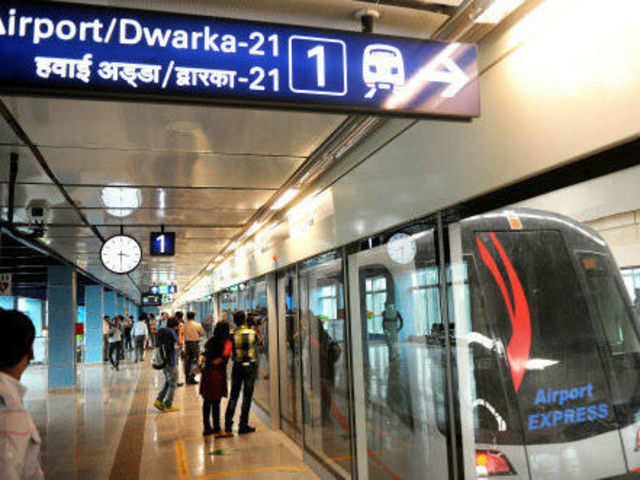Supreme Court upholds Rs. 4600 cr arbitral award in favour of Anil Ambani’s Delhi Airport Metro Express

Noting that “There is a disturbing tendency of courts setting aside arbitral awards,” the Supreme Court has passed an order quashing a Delhi High Court order that had set aside the arbitration award in favor of Anil Ambani-promoted Reliance Infrastructure’s Delhi Airport Metro Express Pvt Ltd (DAMEPL). The award is enforceable against Delhi Metro Rail Corporation (DMRC).
The division bench comprising Justice L. Nageswara Rao and Justice S. Ravindra Bhat upheld the 2017 arbitration award of Rs. 2,800 crores plus interest in favor of DAMEPL in relation to a dispute over the Delhi Airport Express Line. Including the interest, the award is worth over Rs. 4,600 crore.
The Apex Court said that legally trained minds know very well the limited grounds available to courts for annulment of arbitral awards, however, the courts dissect and reassess factual aspects of the cases to come to a conclusion that the award needs intervention.
“This approach would lead to corrosion of the object of the 1996 Act (the Arbitration and Conciliation Act, 1996) and the endeavours made to preserve this object, which is minimal judicial interference with arbitral awards”, the bench held.
The case pertains to a 2008 concession agreement that DMRC entered into with DAMEPL for design, installation, commissioning, operation, and maintenance of the Airport Metro Express Line on a Build–Operate–Transfer (BOT) basis, where DMRC itself undertook design and construction of basic civil structure for the project.
After completion of work, safety clearance was obtained from the Commissioner of Metro Railway Safety (CMRS) and commercial operations ensued in February 2011. However, after a little while, defects emerged in the civil structure constructed by DMRC.
Consequently, DAMEPL terminated the concession agreement on Oct 8, 2012, citing defects in the metro line. DAMEPL stated that despite being pointed out by DAMEPL, the same were allegedly not cured by DMRC within 90 days, resulting in an "event of default" under the agreement.
Thereafter, DMRC invoked arbitration under the Concession Agreement claiming that DAMEPL’s termination notice was illegal, as various steps had been taken by DMRC for honoring its obligations under the concession agreement.
In 2017, the arbitral tribunal accepted DAMEPL's claim that the running of operations on the line for Delhi Airport Express was not viable due to structural defects and awarding damages to DAMEPL directing DMRC to pay Rs. 2800 crore plus interest.
DMRC then filed a petition before a Delhi High Court single judge under Section 34 of the 1996 Act for setting aside the arbitral award, which was dismissed on Mar 6, 2018.
However, on DMRC’s appeal under Section 37 of the 1996 Act, a division bench of the Delhi High Court in January 2019 partly set aside the arbitration award in favor of DAMEPL, stating that the arbitral tribunal had not considered that the tracks were certified as safe for commercial operations and committed a grave error in ignoring the CMRS fitness certificate.
Aggrieved by the Delhi HC division Bench order, DAMEPL approached the Supreme Court.
In its judgment, the apex court has said that the Arbitral Tribunal’s conclusion that DMRC failed to cure the defects within due time was an outcome of interpretation of Article 29.5.1 of the concession agreement entered into between DMRC and DAMEPL.
The Supreme Court said that the CMRS fitness certificate by itself could not come to the rescue of DMRC and held that the Arbitral Tribunal’s finding that the defects were not cured is one fact that could not be interfered with by the court.
The apex court further noted that the issue before the Tribunal was whether the defects were cured within 90 days from the notice dated Jul 9, 2012, and the fitness certificate dated Jan 18, 2013, was not relevant for deciding the said issue.
It therefore concluded that the High Court’s judgment that the award of the Arbitral Tribunal suffers from patent illegality and shocks the conscience of the court, was erroneous.
“As the arbitrator is the sole judge of the quality as well as the quantity of the evidence, the task of being a judge on the evidence before the Tribunal does not fall upon the court in exercise of its jurisdiction under Section 34,” Apex Court said.
Having concluded as above, the Supreme Court allowed the appeal filed by DAMEPL and set aside the judgment of the Division Bench of the High Court.
Case Title: Delhi Airport Metro Express Pvt Ltd v. Delhi Metro Rail Corporation Limited
